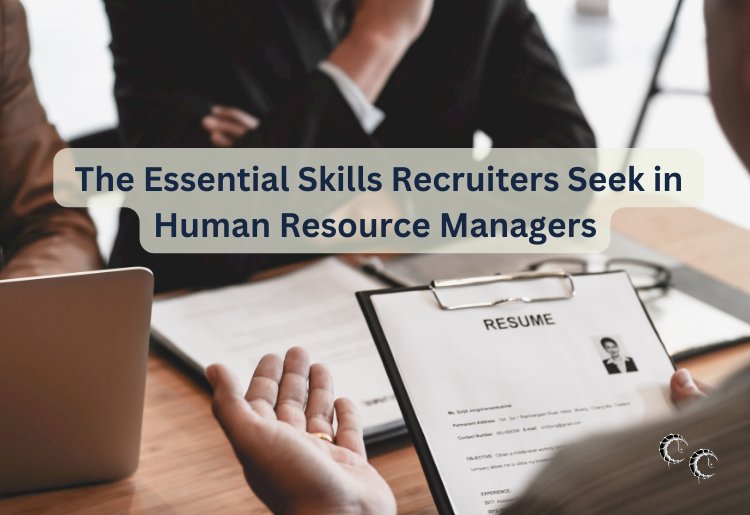The Essential Skills Recruiters Seek in Human Resource Managers

Hey all you out there in Cyberspace!
Human Resource Managers hold a pivotal role within organizations, steering the course of talent acquisition, development, and retention strategies. Recruiters keenly seek professionals equipped with a spectrum of skills to effectively navigate the dynamic landscape of HR. Here are the quintessential competencies recruiters often prioritize when seeking Human Resource Managers:
-
Leadership: Exceptional HR Managers inspire, motivate, and guide teams towards common objectives, fostering an environment conducive to growth and collaboration.
-
Communication: Proficiency in verbal and written communication enables HR Managers to convey information clearly, provide constructive feedback, and liaise effectively with diverse stakeholders.
-
Problem-solving: HR Managers adept at identifying issues, analyzing root causes, and implementing effective solutions contribute to the enhancement of organizational processes and employee experiences.
-
Strategic Planning: A strategic mindset empowers HR Managers to develop and execute plans aligned with organizational goals, anticipating future talent needs and fostering a culture of innovation.
-
Decision-making: Sound judgment and critical thinking skills equip HR Managers to make informed decisions swiftly, navigating complex situations with poise and confidence.
-
Talent Acquisition: Proficiency in talent sourcing, screening, and selection ensures HR Managers can attract top talent that aligns with organizational objectives and culture.
-
Employee Development: HR Managers play a pivotal role in nurturing employee growth and development, providing opportunities for skill enhancement, career advancement, and personal enrichment.
-
Employee Relations: Strong interpersonal skills enable HR Managers to cultivate positive employee relations, mediate conflicts, and foster a culture of respect and inclusivity.
-
Performance Management: Competency in performance evaluation, feedback delivery, and goal-setting facilitates the optimization of employee performance and organizational effectiveness.
-
Legal Compliance: HR Managers stay abreast of relevant employment laws, regulations, and industry standards, ensuring organizational compliance and mitigating risks associated with HR practices.
-
Change Management: Adaptable HR Managers navigate organizational change with resilience and proactivity, facilitating smooth transitions and minimizing disruption to employee morale and productivity.
-
Data Analysis: HR Managers leverage data analytics to identify trends, patterns, and insights, informing strategic HR decisions and optimizing processes for enhanced efficiency and effectiveness.
While the emphasis on these skills may vary depending on organizational priorities and industry dynamics, they collectively represent the cornerstone of success for Human Resource Managers. By honing these competencies, aspiring HR professionals can position themselves as invaluable assets to their organizations, driving sustainable growth and fostering a thriving workplace culture.





























